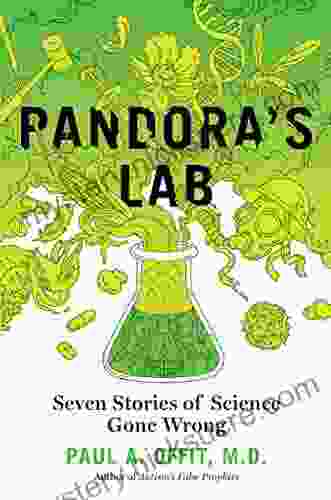Seven Stories of Science Gone Wrong: When Curiosity and Progress Led to Disaster

The pursuit of knowledge and scientific advancement has been a driving force behind human civilization. However, in our tireless quest to understand and harness the mysteries of the universe, we have occasionally stumbled upon unforeseen consequences that have had catastrophic outcomes. This article delves into seven harrowing tales of science gone wrong, showcasing the complexities and the potential pitfalls of our relentless pursuit of progress.
1. The Challenger Disaster: A Failure of Communication and Complacency
On January 28, 1986, the Space Shuttle Challenger exploded just 73 seconds after liftoff, claiming the lives of all seven crew members. The investigation revealed a series of communication breakdowns and organizational complacency that led to the fatal event. Engineers had raised concerns about the safety of the shuttle's O-rings, but their warnings were disregarded by NASA management. As a result, a critical failure occurred, causing the shuttle to break apart and plummet into the Atlantic Ocean.
4.5 out of 5
| Language | : | English |
| File size | : | 4287 KB |
| Text-to-Speech | : | Enabled |
| Screen Reader | : | Supported |
| Enhanced typesetting | : | Enabled |
| X-Ray | : | Enabled |
| Word Wise | : | Enabled |
| Print length | : | 277 pages |
| Lending | : | Enabled |
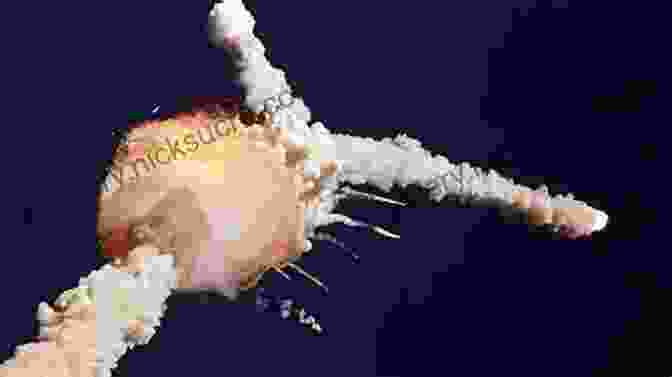
2. The Bhopal Gas Tragedy: A Toxic Catastrophe
In December 1984, a chemical plant in Bhopal, India, released a cloud of toxic methyl isocyanate gas into the surrounding environment. The accident, caused by a combination of human error and poor safety measures, killed over 3,800 people and left thousands more with severe respiratory and neurological problems. The tragedy highlighted the devastating consequences of inadequate industrial regulations and the need for stringent safety protocols to prevent similar disasters from occurring.
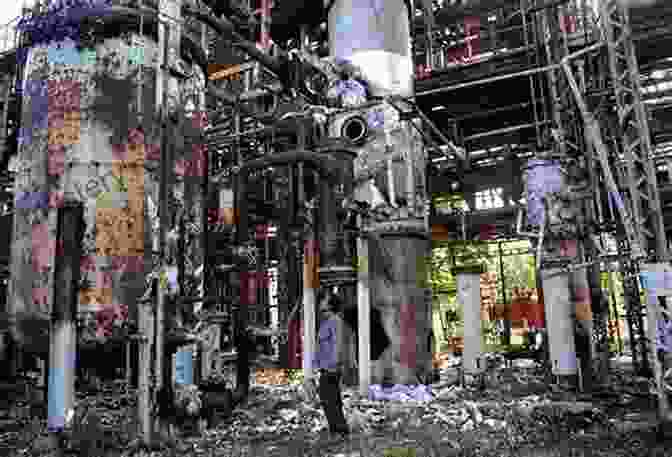
3. The Chernobyl Nuclear Disaster: A Tragedy of Human Error
On April 26, 1986, the Chernobyl Nuclear Power Plant in Ukraine witnessed one of the most catastrophic nuclear accidents in history. A series of gross human errors and design flaws led to an explosion and fire that released a massive amount of radioactive material into the atmosphere. The disaster resulted in the death of 31 people immediately and an estimated 4,000 to 93,000 additional deaths due to long-term radiation exposure.

4. The Thalidomide Tragedy: A Medical Disaster
In the 1950s, thalidomide was widely prescribed as a sedative for pregnant women. However, it was later discovered that the drug caused severe birth defects in children born to mothers who had taken it. Over 10,000 babies were born with severe limb deformities, known as phocomelia, and other health problems as a result of thalidomide's usage. This tragedy led to the implementation of stricter regulations for drug testing and the establishment of the FDA in the United States.

5. The Tuskegee Syphilis Experiment: A Violation of Human Rights
From 1932 to 1972, the U.S. Public Health Service conducted a horrific experiment on African American men in Tuskegee, Alabama. Researchers deliberately withheld treatment for syphilis from the participants, even after penicillin was proven to be an effective cure. The study aimed to observe the natural progression of the disease, but it resulted in the unnecessary suffering and death of countless men. The Tuskegee experiment remains a dark chapter in the history of medical ethics and human rights violations.
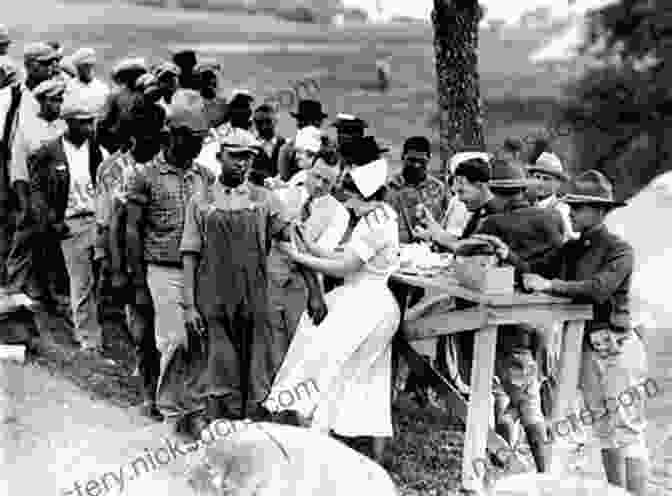
6. The MKUltra Project: A CIA Mind Control Experiment
From the 1950s to the 1970s, the CIA conducted a series of covert experiments known as the MKUltra project. The goal of the program was to develop mind control techniques through the use of drugs, hypnosis, and sensory deprivation. MKUltra subjected thousands of unsuspecting individuals to psychological torture, including LSD experiments, electroshock therapy, and isolation. The project remains shrouded in secrecy and controversy, and its full extent and consequences are still largely unknown.

7. The Fukushima Daiichi Nuclear Disaster: A Reminder of Nuclear Power's Risks
On March 11, 2011, a massive earthquake and tsunami struck Japan, causing severe damage to the Fukushima Daiichi Nuclear Power Plant. The disaster resulted in the release of radioactive material into the environment and forced the evacuation of over 100,000 people. The Fukushima Daiichi Nuclear Disaster highlighted the ongoing risks associated with nuclear power and sparked a global debate about the future of this energy source.
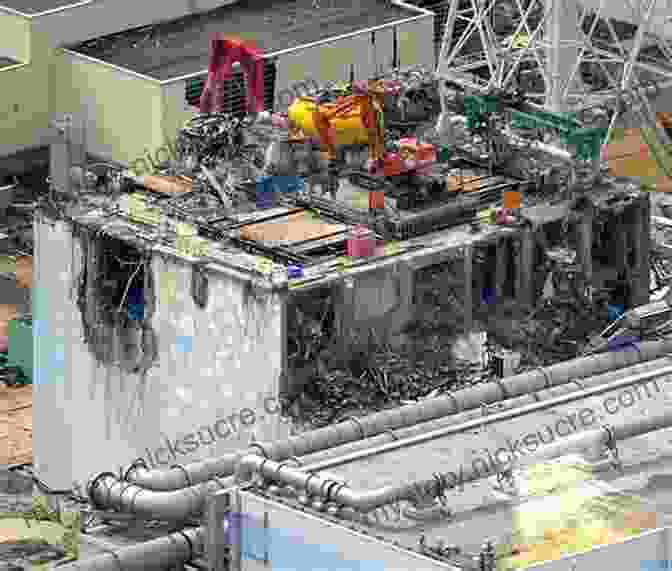
These seven stories of science gone wrong serve as stark reminders of the inherent risks involved in our relentless pursuit of knowledge and progress. They underscore the importance of ethical considerations, rigorous safety protocols, and transparent communication in scientific endeavors. While science has undoubtedly brought countless benefits to humankind, it is essential to approach it with humility and a healthy respect for the potential consequences of our actions. Only through a balanced approach, where scientific advancement is tempered with ethical responsibility and a commitment to human well-being, can we truly harness the power of science for the betterment of our world.
4.5 out of 5
| Language | : | English |
| File size | : | 4287 KB |
| Text-to-Speech | : | Enabled |
| Screen Reader | : | Supported |
| Enhanced typesetting | : | Enabled |
| X-Ray | : | Enabled |
| Word Wise | : | Enabled |
| Print length | : | 277 pages |
| Lending | : | Enabled |
Do you want to contribute by writing guest posts on this blog?
Please contact us and send us a resume of previous articles that you have written.
 Fiction
Fiction Non Fiction
Non Fiction Romance
Romance Mystery
Mystery Thriller
Thriller SciFi
SciFi Fantasy
Fantasy Horror
Horror Biography
Biography Selfhelp
Selfhelp Business
Business History
History Classics
Classics Poetry
Poetry Childrens
Childrens Young Adult
Young Adult Educational
Educational Cooking
Cooking Travel
Travel Lifestyle
Lifestyle Spirituality
Spirituality Health
Health Fitness
Fitness Technology
Technology Science
Science Arts
Arts Crafts
Crafts DIY
DIY Gardening
Gardening Petcare
Petcare Jen Howver
Jen Howver Bruce Watt
Bruce Watt Collins Easy Learning
Collins Easy Learning Victoria Honeybourne
Victoria Honeybourne William Wood
William Wood Dan Romanchik Kb6nu
Dan Romanchik Kb6nu Robert Garland
Robert Garland Carol Inskipp
Carol Inskipp Maurice J Thompson
Maurice J Thompson Jacob Erez
Jacob Erez Lisa Feldman Barrett
Lisa Feldman Barrett Rebecca Musser
Rebecca Musser Om Krishna Uprety
Om Krishna Uprety Sallyann Beresford
Sallyann Beresford E Ink Utilizer
E Ink Utilizer Samantha De Senna Fernandes
Samantha De Senna Fernandes Susan Orlean
Susan Orlean Graham Hancock
Graham Hancock Elena Paige
Elena Paige George Daniel
George Daniel Mike X Cohen
Mike X Cohen Sara Gaviria
Sara Gaviria Erin Beaty
Erin Beaty Nicola Yoon
Nicola Yoon Jared Diamond
Jared Diamond Susan Garcia
Susan Garcia Della Ata Khoury
Della Ata Khoury John R Mabry
John R Mabry Francis Glebas
Francis Glebas Martina D Antiochia
Martina D Antiochia Dave Rearick
Dave Rearick Sarah Ockwell Smith
Sarah Ockwell Smith Bryce Carlson
Bryce Carlson Craig Martelle
Craig Martelle Nedu
Nedu Jim Supica
Jim Supica Joanne V Hickey
Joanne V Hickey Nick Littlehales
Nick Littlehales Jeff Belanger
Jeff Belanger Dounya Awada
Dounya Awada Dennis Adler
Dennis Adler Katherine D Kinzler
Katherine D Kinzler Mona Bijjani
Mona Bijjani Jennifer Rose
Jennifer Rose Nick Tumminello
Nick Tumminello Rowena Bennett
Rowena Bennett Donna R Causey
Donna R Causey Martin Davies
Martin Davies Creek Stewart
Creek Stewart Carmen Davenport
Carmen Davenport James Goi Jr
James Goi Jr Philip Purser Hallard
Philip Purser Hallard Thomas Deetjen
Thomas Deetjen Dian Olson Belanger
Dian Olson Belanger Jonathan T Gilliam
Jonathan T Gilliam C S Lewis
C S Lewis Dianne Maroney
Dianne Maroney John H Falk
John H Falk Joyceen S Boyle
Joyceen S Boyle Lsat Unplugged
Lsat Unplugged Steven Kerry Brown
Steven Kerry Brown Duncan Steel
Duncan Steel David Wilber
David Wilber Trevor Thomas
Trevor Thomas Byron L Reeder
Byron L Reeder Wyatt Mcspadden
Wyatt Mcspadden Bryan Litz
Bryan Litz John Kretschmer
John Kretschmer Law School Admission Council
Law School Admission Council Melissa Mullamphy
Melissa Mullamphy Malika Grayson
Malika Grayson Roger Marshall
Roger Marshall Paul Rabinow
Paul Rabinow Luc Mehl
Luc Mehl Nikki Carroll
Nikki Carroll Peter Bodo
Peter Bodo Charles Staley
Charles Staley Michael A Tompkins
Michael A Tompkins Sammy Franco
Sammy Franco Tom Cunliffe
Tom Cunliffe Vivian Foster
Vivian Foster Bunmi Laditan
Bunmi Laditan Darcy Lever
Darcy Lever Tim S Grover
Tim S Grover Dan Flores
Dan Flores W D Wetherell
W D Wetherell Mark Young
Mark Young Scott Hartshorn
Scott Hartshorn Max Lucado
Max Lucado Graham Norton
Graham Norton C J Archer
C J Archer Jack Disbrow Gunther
Jack Disbrow Gunther Maha Alkurdi
Maha Alkurdi C M Carney
C M Carney Elisabeth Elliot
Elisabeth Elliot Mark Stanton
Mark Stanton John M Marzluff
John M Marzluff Howard E Mccurdy
Howard E Mccurdy Albert Rutherford
Albert Rutherford Douglas Preston
Douglas Preston Tim Freke
Tim Freke Kat Davis
Kat Davis Joseph Correa
Joseph Correa Carrie Marie Bratley
Carrie Marie Bratley Carrie Hope Fletcher
Carrie Hope Fletcher Narain Moorjani
Narain Moorjani Donna Goldberg
Donna Goldberg Celeste Headlee
Celeste Headlee Stedman Graham
Stedman Graham Richard W Voelz
Richard W Voelz Daniel Prince
Daniel Prince Ned Feehally
Ned Feehally Don Allen Jr
Don Allen Jr Mary Pagones
Mary Pagones Lingo Mastery
Lingo Mastery Katharine Mcgee
Katharine Mcgee Joseph Moss
Joseph Moss Healthfit Publishing
Healthfit Publishing Stacey Rourke
Stacey Rourke Phil Williams
Phil Williams Marc Bona
Marc Bona The Atavist
The Atavist Jessica Holsman
Jessica Holsman Jessica Howard
Jessica Howard Rick Trickett
Rick Trickett Matt Mullenix
Matt Mullenix Chris Pountney
Chris Pountney Meg Cabot
Meg Cabot Eric P Lane
Eric P Lane Max Prasac
Max Prasac Thomas Achatz
Thomas Achatz Jim Kempton
Jim Kempton Nick Gamis
Nick Gamis Scarlett V Clark
Scarlett V Clark Emily Writes
Emily Writes Matthew Marchon
Matthew Marchon Helen Zuman
Helen Zuman Paul Murdin
Paul Murdin J Maarten Troost
J Maarten Troost Brandy Colbert
Brandy Colbert Mary C Townsend
Mary C Townsend R Scott Thornton
R Scott Thornton Huberta Wiertsema
Huberta Wiertsema Michael Chatfield
Michael Chatfield Gary Mayes
Gary Mayes Hecateus Apuliensis
Hecateus Apuliensis Silvia Dunn
Silvia Dunn Sam Priestley
Sam Priestley M E Brines
M E Brines Susan Frederick Gray
Susan Frederick Gray Sophie D Coe
Sophie D Coe Fern Schumer Chapman
Fern Schumer Chapman Jasmine Shao
Jasmine Shao Richard Henry Dana
Richard Henry Dana Marco Wenisch
Marco Wenisch Maxine A Goldman
Maxine A Goldman Lynette Noni
Lynette Noni Sylvia Williams Dabney
Sylvia Williams Dabney Edward Humes
Edward Humes John Flanagan
John Flanagan Valliappa Lakshmanan
Valliappa Lakshmanan Carole Bouchard
Carole Bouchard Upton Sinclair
Upton Sinclair Mo Gawdat
Mo Gawdat Steve Guest
Steve Guest Sarah Berman
Sarah Berman Nicolas Bergeron
Nicolas Bergeron Ken Sande
Ken Sande Emma Warren
Emma Warren Sonia Shah
Sonia Shah James W Anderson
James W Anderson Hugh Aldersey Williams
Hugh Aldersey Williams Jim West
Jim West Tina Schindler
Tina Schindler John Burroughs
John Burroughs Carlos I Calle
Carlos I Calle Heather Balogh Rochfort
Heather Balogh Rochfort Sarah Jacoby
Sarah Jacoby Earl G Williams
Earl G Williams Destiny S Harris
Destiny S Harris Maren Stoffels
Maren Stoffels Michael D Alessio
Michael D Alessio Jim Wiese
Jim Wiese Jason Runkel Sperling
Jason Runkel Sperling S M Kingdom
S M Kingdom Chris Morton
Chris Morton J R Harris
J R Harris Oprah Winfrey
Oprah Winfrey Kevin Howell
Kevin Howell Tyler Burt
Tyler Burt Sheila A Sorrentino
Sheila A Sorrentino Jill Angie
Jill Angie Helen Webster
Helen Webster Maria Van Noord
Maria Van Noord Scott Mactavish
Scott Mactavish Robert Moor
Robert Moor Richard Barrett
Richard Barrett Erin Macy
Erin Macy David Tanis
David Tanis Bruce W Harris
Bruce W Harris Emt Basic Exam Prep Team
Emt Basic Exam Prep Team Sheri Morehouse
Sheri Morehouse Ron Senyor
Ron Senyor Paige Powers
Paige Powers Jimmy Chin
Jimmy Chin Jamie Marich
Jamie Marich Justin Coulson
Justin Coulson Jane Brocket
Jane Brocket Neville Goddard
Neville Goddard Richard Harding Davis
Richard Harding Davis Shyima Hall
Shyima Hall Paul Lobo
Paul Lobo Shelby Hailstone Law
Shelby Hailstone Law J D Williams
J D Williams Declan Lyons
Declan Lyons Charles Sanger
Charles Sanger Albert Jeremiah Beveridge
Albert Jeremiah Beveridge David Cannon
David Cannon John Jamieson
John Jamieson Skip Lockwood
Skip Lockwood Judith Merkle Riley
Judith Merkle Riley Vladimir Lossky
Vladimir Lossky Eugenia G Kelman
Eugenia G Kelman Peter J D Adamo
Peter J D Adamo Dave Bosanko
Dave Bosanko C F Crist
C F Crist Jim Warnock
Jim Warnock Ivar Dedekam
Ivar Dedekam Leah Hazard
Leah Hazard Martha Finley
Martha Finley Charles Salzberg
Charles Salzberg Mark Stavish
Mark Stavish Pia Nilsson
Pia Nilsson Kevin Houston
Kevin Houston John Vince
John Vince Dory Willer
Dory Willer Natasha Daniels
Natasha Daniels Kathleen Flinn
Kathleen Flinn Linda Rosenkrantz
Linda Rosenkrantz Nicola S Dorrington
Nicola S Dorrington Caitlyn Dare
Caitlyn Dare Ira K Wolf
Ira K Wolf Peterson S
Peterson S Vincent Chidindu Asogwa
Vincent Chidindu Asogwa Thomas Daniels
Thomas Daniels Elaine Tyler May
Elaine Tyler May Kerry H Cheever
Kerry H Cheever Cal Newport
Cal Newport Aaron Reed
Aaron Reed James Beard
James Beard Matt Racine
Matt Racine Elizabeth Laing Thompson
Elizabeth Laing Thompson Pamela Weintraub
Pamela Weintraub Meghan Daum
Meghan Daum Romola Anderson
Romola Anderson Stian Christophersen
Stian Christophersen Veronica Roth
Veronica Roth Bruce Van Brunt
Bruce Van Brunt Don S Lemons
Don S Lemons Ivan Gridin
Ivan Gridin Chris Bonington
Chris Bonington Orangepen Publications
Orangepen Publications Dorothy Canfield Fisher
Dorothy Canfield Fisher Konstantinos Mylonas
Konstantinos Mylonas Joel Best
Joel Best Chad Eastham
Chad Eastham Diane Lindsey Reeves
Diane Lindsey Reeves Tricia Levenseller
Tricia Levenseller Dvora Meyers
Dvora Meyers Max Lugavere
Max Lugavere L W Jacobs
L W Jacobs E W Barton Wright
E W Barton Wright Scott Cawthon
Scott Cawthon Veronica Eden
Veronica Eden Sophie Messager
Sophie Messager Cameron Mcwhirter
Cameron Mcwhirter Janet Evans
Janet Evans Michael Tan
Michael Tan Megan Miller
Megan Miller Lina K Lapina
Lina K Lapina Olivier Doleuze
Olivier Doleuze Doug Cook
Doug Cook Julie Golob
Julie Golob Guy Grieve
Guy Grieve Leslie A Sams
Leslie A Sams Robert Larrison
Robert Larrison Suzanne Young
Suzanne Young Matt Baglio
Matt Baglio Matt Price
Matt Price William Ian Miller
William Ian Miller Db King
Db King Ronald T Potter Efron
Ronald T Potter Efron Clement Salvadori
Clement Salvadori Niels H Lauersen
Niels H Lauersen Pat Rigsby
Pat Rigsby John H Cunningham
John H Cunningham Kathy Woods
Kathy Woods Christine Mari Inzer
Christine Mari Inzer Lynn Butler Kisber
Lynn Butler Kisber Philippe Karl
Philippe Karl Ivy Hope
Ivy Hope Dr Tommy John
Dr Tommy John Roger J Davies
Roger J Davies Joe Baker
Joe Baker Buddy Levy
Buddy Levy Ed Housewright
Ed Housewright Sarah Baker
Sarah Baker Stephen Harrison
Stephen Harrison Norman Thelwell
Norman Thelwell Henry Malone
Henry Malone Robert D Gibbons
Robert D Gibbons Valerie Poore
Valerie Poore Emily Lowry
Emily Lowry Simon A Rego
Simon A Rego Ian Tuhovsky
Ian Tuhovsky Jeff Scheetz
Jeff Scheetz Mathew Orton
Mathew Orton Lee Alan Dugatkin
Lee Alan Dugatkin John J Ratey
John J Ratey Scott Mcmillion
Scott Mcmillion Elizabeth May
Elizabeth May Ian Leslie
Ian Leslie William M Baum
William M Baum John Moren
John Moren Martina Mcbride
Martina Mcbride Marisa Peer
Marisa Peer Kelly Rowland
Kelly Rowland Bruce Sutherland
Bruce Sutherland K C Cole
K C Cole Ken Schwaber
Ken Schwaber Jess J James
Jess J James Steve Barrett
Steve Barrett Tony E Adams
Tony E Adams Sandra Niche
Sandra Niche Frank Muir
Frank Muir Pedro Urvi
Pedro Urvi Michelle Travis
Michelle Travis Dick Hannula
Dick Hannula Craig Callender
Craig Callender Zachery Knowles
Zachery Knowles Melissa A Priblo Chapman
Melissa A Priblo Chapman Trevelyan
Trevelyan Natasha Ngan
Natasha Ngan Shmuel Goldberg
Shmuel Goldberg Cornelia Pelzer Elwood
Cornelia Pelzer Elwood Lewis Kirkham
Lewis Kirkham Stephen King
Stephen King Richard Drake
Richard Drake Heather Jacobson
Heather Jacobson Phil Bourque
Phil Bourque John Grehan
John Grehan Oliver Sacks
Oliver Sacks Shawna Richer
Shawna Richer Lois Lowry
Lois Lowry Deirdre V Lovecky
Deirdre V Lovecky Kruti Joshi
Kruti Joshi Michael Blastland
Michael Blastland Nicholas Tomalin
Nicholas Tomalin Mcgraw Hill
Mcgraw Hill Eric R Dodge
Eric R Dodge Kacen Callender
Kacen Callender Julia Ann Clayton
Julia Ann Clayton Michael Gurian
Michael Gurian Kendall Rose
Kendall Rose Leslie R Schover
Leslie R Schover Matthew Warner Osborn
Matthew Warner Osborn Ashley Eckstein
Ashley Eckstein Lisa Hopp
Lisa Hopp Theodora Papatheodorou
Theodora Papatheodorou Shea Ernshaw
Shea Ernshaw Tibor Rutar
Tibor Rutar J R Rain
J R Rain Dr Monika Chopra
Dr Monika Chopra Marc Van Den Bergh
Marc Van Den Bergh Wilhelm Reich
Wilhelm Reich Rand Cardwell
Rand Cardwell Sue Elvis
Sue Elvis Thomas Carothers
Thomas Carothers Simon Michael Prior
Simon Michael Prior Melanie Anne Phillips
Melanie Anne Phillips Kevin A Morrison
Kevin A Morrison Ralph Galeano
Ralph Galeano Keith Brewer
Keith Brewer Marla Taviano
Marla Taviano Laurie Notaro
Laurie Notaro Sherri L Jackson
Sherri L Jackson Robert Walker
Robert Walker Anthony Camera
Anthony Camera Tey Meadow
Tey Meadow Mark Hansen
Mark Hansen Gregory A Kompes
Gregory A Kompes Barbara Acello
Barbara Acello Tanya Hackney
Tanya Hackney Jack Canfield
Jack Canfield William Rathje
William Rathje Tyler Trent
Tyler Trent Wayne Coffey
Wayne Coffey Meriwether Lewis
Meriwether Lewis Ashley Christensen
Ashley Christensen Issai Chozanshi
Issai Chozanshi Lew Freedman
Lew Freedman James Miller
James Miller Kaplan Test Prep
Kaplan Test Prep Larry Larsen
Larry Larsen Jesse Romero
Jesse Romero Elmer Keith
Elmer Keith Dina Nayeri
Dina Nayeri Jennifer L Scott
Jennifer L Scott Cassandra Mack
Cassandra Mack Lianna Marie
Lianna Marie Hibiki Yamazaki
Hibiki Yamazaki Marcia Scheiner
Marcia Scheiner Ronit Irshai
Ronit Irshai Cathy Glass
Cathy Glass Ransom Riggs
Ransom Riggs Lottie Bildirici
Lottie Bildirici Lily Raff Mccaulou
Lily Raff Mccaulou Fmg Publications Special Edition
Fmg Publications Special Edition Shaunti Feldhahn
Shaunti Feldhahn William Ellet
William Ellet Joanne Kimes
Joanne Kimes Steven W Dulan
Steven W Dulan Leon Speroff
Leon Speroff Ron Rapoport
Ron Rapoport Tom Bass
Tom Bass Winky Lewis
Winky Lewis David Eagleman
David Eagleman Lucy Cooke
Lucy Cooke Lee Jackson
Lee Jackson Leah Zani
Leah Zani Pam Flowers
Pam Flowers Douglas P Fry
Douglas P Fry Denise May Levenick
Denise May Levenick R L Medina
R L Medina Caroline Manta
Caroline Manta Lily Field
Lily Field Arrl Inc
Arrl Inc Lauren Manoy
Lauren Manoy Robert Edward Grant
Robert Edward Grant Karen J Rooney
Karen J Rooney Kevin Panetta
Kevin Panetta Charu C Aggarwal
Charu C Aggarwal David Savedge
David Savedge Winslow Tudor
Winslow Tudor Paul A Offit
Paul A Offit Elizabeth Dupart
Elizabeth Dupart Kindle Edition
Kindle Edition Fiona Beddall
Fiona Beddall Jeffrey L Kohanek
Jeffrey L Kohanek Jim Al Khalili
Jim Al Khalili Nawuth Keat
Nawuth Keat Cecil B Hartley
Cecil B Hartley Michael Mewshaw
Michael Mewshaw Bruce Maxwell
Bruce Maxwell Sterling Test Prep
Sterling Test Prep Frederick Jackson Turner
Frederick Jackson Turner Tim Glover
Tim Glover Jennifer Appel
Jennifer Appel Tamara Ferguson
Tamara Ferguson Kyra Phillips
Kyra Phillips Warwick Deeping
Warwick Deeping Sarah Prager
Sarah Prager William L Sullivan
William L Sullivan Freya Pickard
Freya Pickard Michael Lear Hynson
Michael Lear Hynson Gary Lewis
Gary Lewis Terry Laughlin
Terry Laughlin Richard Bullivant
Richard Bullivant Elizabeth Anne Wood
Elizabeth Anne Wood David Nathan Fuller
David Nathan Fuller Stella Cottrell
Stella Cottrell Caleb J Tzilkowski
Caleb J Tzilkowski Robert A Cutietta
Robert A Cutietta Greg W Prince
Greg W Prince Rita Golden Gelman
Rita Golden Gelman Katie Fallon
Katie Fallon Troy Horne
Troy Horne Rob Pate
Rob Pate Ruthellen Josselson
Ruthellen Josselson Richard C Francis
Richard C Francis Julietta Suzuki
Julietta Suzuki David Martin
David Martin Nigel Cawthorne
Nigel Cawthorne
Light bulbAdvertise smarter! Our strategic ad space ensures maximum exposure. Reserve your spot today!

 Jean BlairKrishna Mechanics of Solid, Edition 1B, Pages 596, Code 804: A Comprehensive...
Jean BlairKrishna Mechanics of Solid, Edition 1B, Pages 596, Code 804: A Comprehensive... Jaime MitchellFollow ·2.4k
Jaime MitchellFollow ·2.4k Yasunari KawabataFollow ·9.8k
Yasunari KawabataFollow ·9.8k Guy PowellFollow ·9.2k
Guy PowellFollow ·9.2k Steve CarterFollow ·16.3k
Steve CarterFollow ·16.3k Darrell PowellFollow ·5.5k
Darrell PowellFollow ·5.5k Theodore MitchellFollow ·17.7k
Theodore MitchellFollow ·17.7k Ernest HemingwayFollow ·8.8k
Ernest HemingwayFollow ·8.8k Harrison BlairFollow ·4.5k
Harrison BlairFollow ·4.5k

 Henry David Thoreau
Henry David ThoreauHow To Bake In Unique Way: Unleash Your Culinary...
Baking is an art form that transcends the...

 F. Scott Fitzgerald
F. Scott FitzgeraldAcademic Magic: Unveil the Secrets of The Last Magus
Delve into a Realm of...
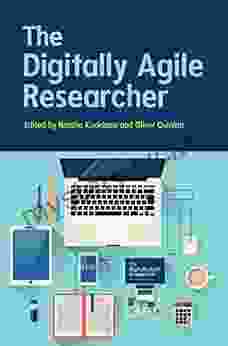
 John Green
John GreenThe Digitally Agile Researcher in UK Higher Education:...
In the rapidly...

 George Orwell
George OrwellZinc: Sources And Significance To Human Health
Zinc, an essential trace mineral, plays a...
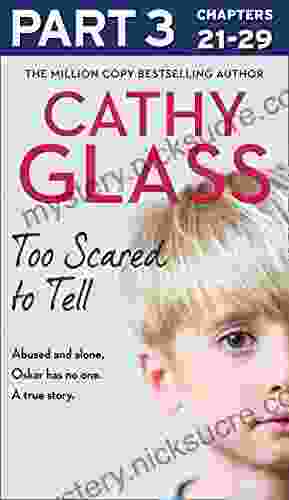
 Mario Simmons
Mario SimmonsToo Scared to Tell: A Harrowing and Thought-Provoking...
In the realm...
4.5 out of 5
| Language | : | English |
| File size | : | 4287 KB |
| Text-to-Speech | : | Enabled |
| Screen Reader | : | Supported |
| Enhanced typesetting | : | Enabled |
| X-Ray | : | Enabled |
| Word Wise | : | Enabled |
| Print length | : | 277 pages |
| Lending | : | Enabled |


